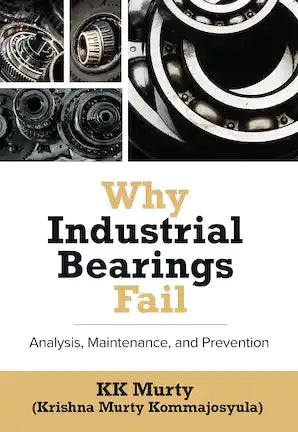Description
A bearing is a common machine element used to constrain motion and reduce friction between moving parts. Bearings are used extensively in global industries, including automotive, construction, power generation, mechanical, chemical, mining, infrastructure, medical, food, etc. The estimated bearing market was valued at $128 billion in 2021, and expected to increase to nearly $227 billion by 2028.
Unfortunately, sometimes bearings fail, and often at the most inopportune time. This is a source of great concern and expense to users, causing downtime and the loss of millions in damages, outages, and lack of productivity. While modern precision manufacturing and maintenance practices have reduced some of the premature failure, they haven’t addressed many of the core problems that lead to bearing failure.
This work presents a collection of different case studies in a multitude of industries where bearings have failed, and includes a failure description, observations, possible reasons for the failure, plausible cause and effect, and then discusses what might have been done to mitigate the problem and, when possible, provides solutions to prevent further failures. The author uses root cause failure analysis and explores such topics as alignment, lubrication, manufacturing defects, mounting practices, contamination, and fatigue. He then explains how one or a combination of these issues worked together to cause the failure, and offers preventive solutions to avoid future problems.




